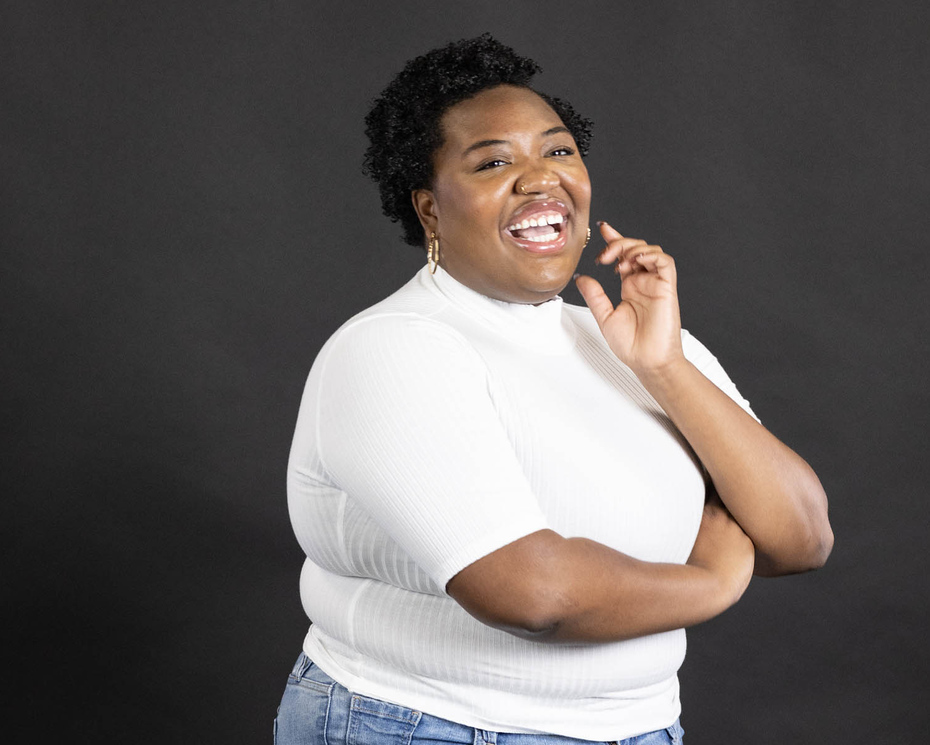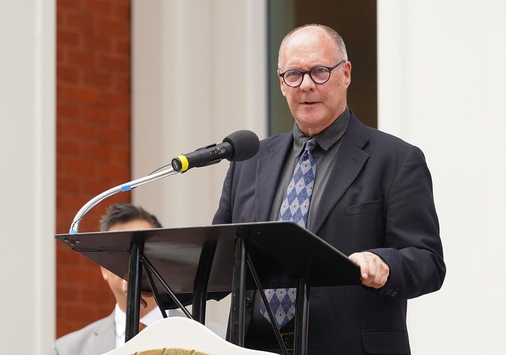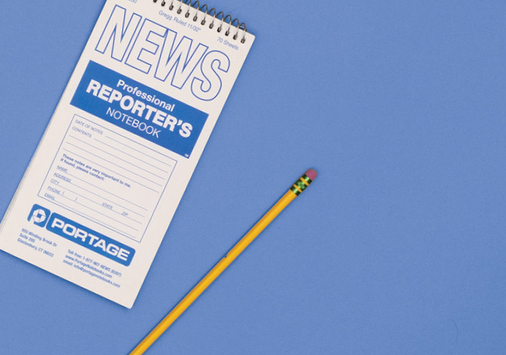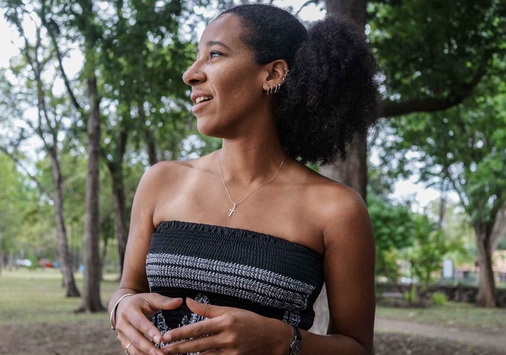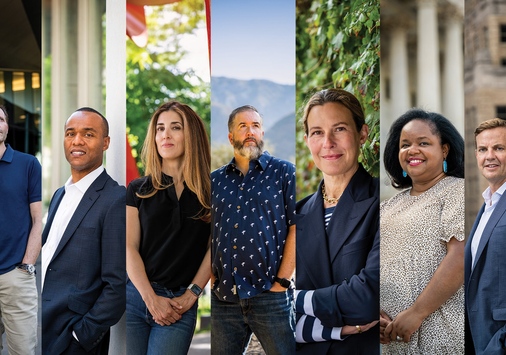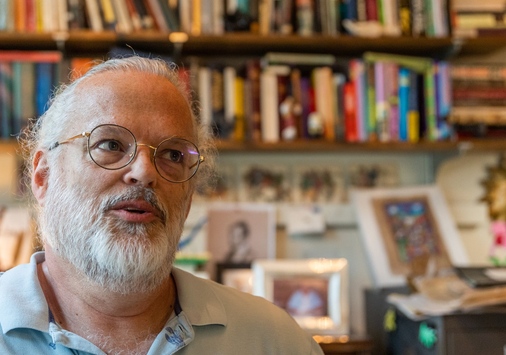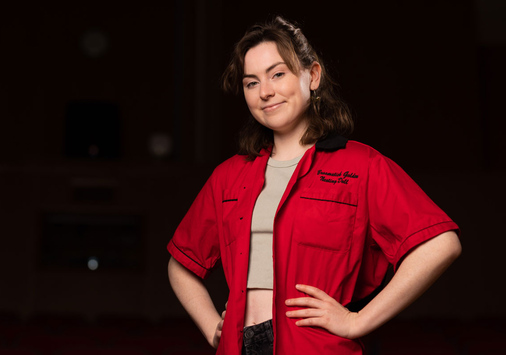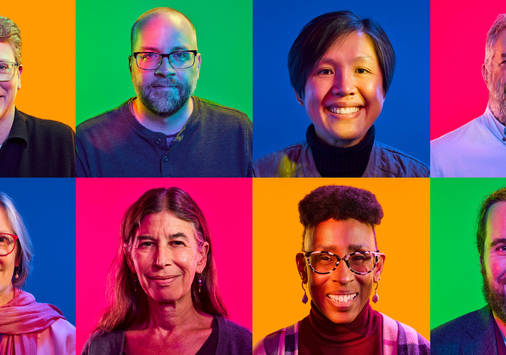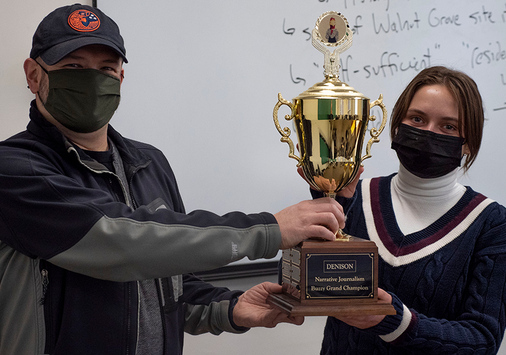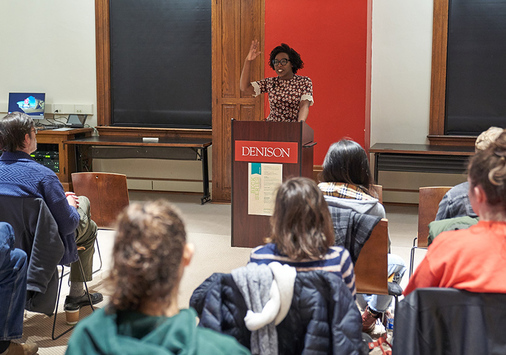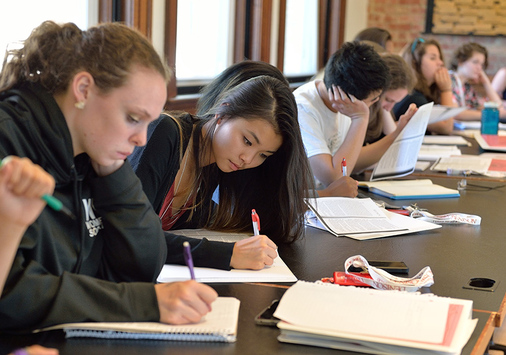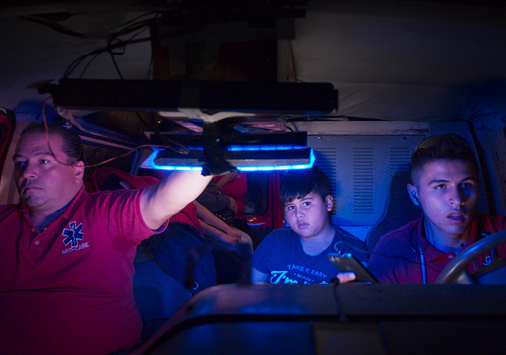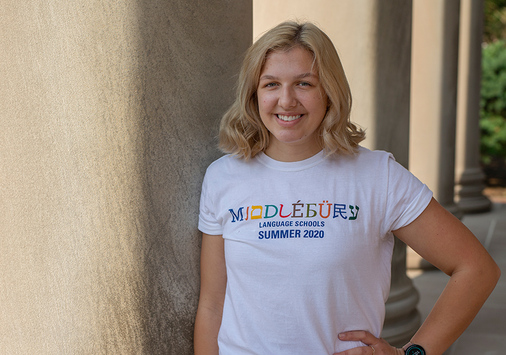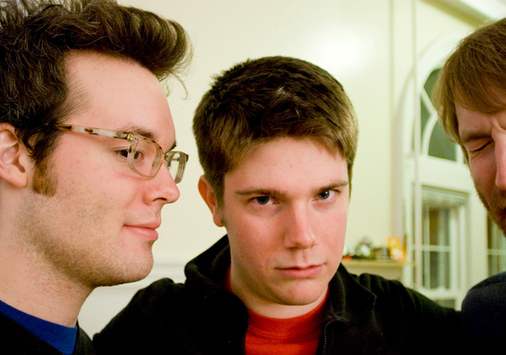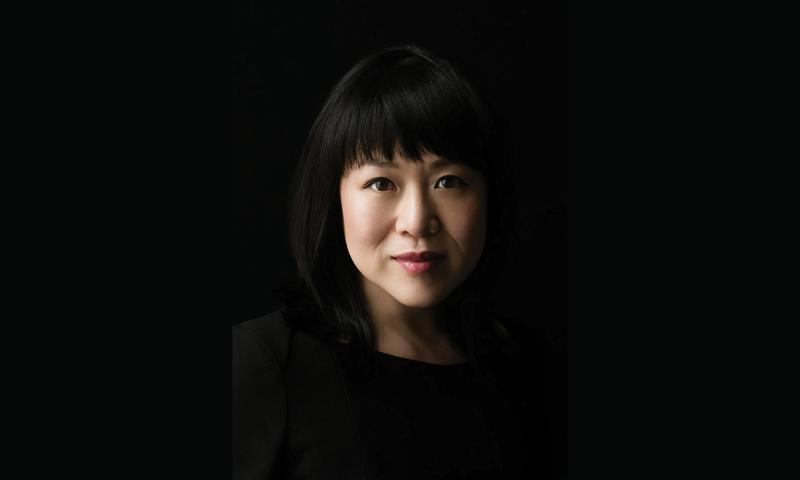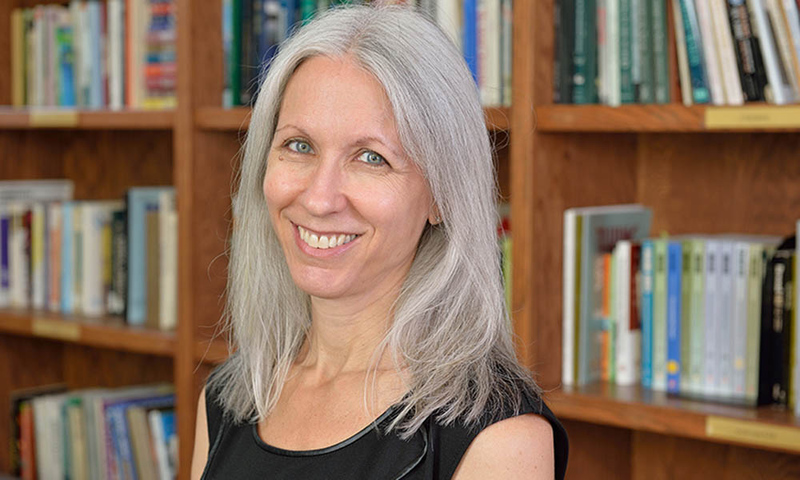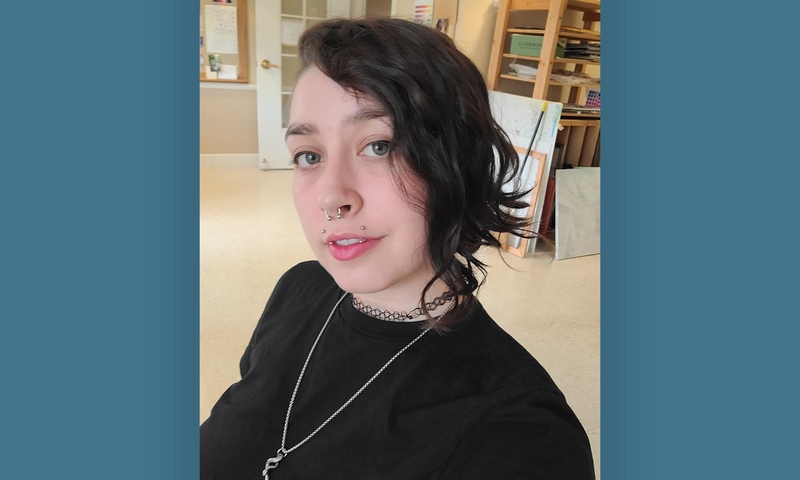Creative Writing
English majors at Denison can choose an emphasis either in literary studies or in creative writing. We offer a wide variety of courses that engage with human experience, recent and historical as well as local and global.
Denison’s English-Creative Writing Program is Unique.
Creative writing is a Denison tradition. One of the oldest undergraduate creative writing programs in the country, Denison’s major and minor in creative writing offer small classes taught by full-time professors, all practicing writers and poets, who also mentor and advise students. With over 100 majors and minors, you’ll be part of a vibrant community of writing peers.
Our students learn from the pros first-hand. Denison’s creative writing professors actively publish across the genres. We also bring a star-studded cast of visiting writers to campus through the Beck Series. Each year, we bring prizewinning writers to campus to give readings, visit classes, meet with students, and more. Almost anyone you can think of has visited Denison at some point, and our students have lots of opportunities to meet the writers in person, join them for a meal, and get feedback on their work. Past Beck Series visitors include Viet Thanh Nguyen, Joy Harjo, Ada Limón, Connie Schultz, Hanif Abdurraqib, Amor Towles, and many others.
Create your future with hands-on opportunities. Our creative writing faculty are proactive in helping students explore career opportunities and find internships in the publishing world and beyond. Student interns help edit Columbus-based Story magazine, spend the summer at the Virginia Quarterly Review, and produce our own student-run literary journal, Exile. All senior majors pursue a capstone project under the close guidance of a professor, producing a substantial manuscript.
Our Curriculum
English-Creative Writing majors take ten courses:
- Creative writing courses start with the multigenre introduction to creative writing, proceed to upper-level writing workshops in fiction, poetry, and creative nonfiction, and culminate with a capstone senior writing project, in which students work closely with a professor to produce a substantial work. Majors also take a “Form and Theory” course focused on examining how narrative and poetic forms and structures work.
- Majors also take three English literature courses at the 100- or 200-level, at least one of which must be at the 100 level. These courses provide a background in literary history and an understanding of the interrelationships between literature, history, politics, philosophy, the arts, and popular culture in various periods of British and American literature.
- Majors also take two 300- or 400-level literature seminars. These courses focus on specific topics, such as African-American Women’s Literature, Postcolonial Literature, Middle Ages and Middle-Earth, and Contemporary Poetry.
- At least one of the ten courses must be in a literary tradition of historically marginalized or traditionally underrepresented people.
- Minors take six courses: two courses in the creative writing sequence (Introduction to Creative Writing and one upper-level writing workshop), two literature courses at the 100 or 200 level, and two literature courses at the 300 or 400 level. One of the literature courses must be in a literary tradition of historically marginalized or traditionally underrepresented people.
By design, many of these courses overlap with those required for the English-Literature emphasis, making it easy to switch tracks. Many creative writing majors often add on Journalism. About half of our students double major in a wide array of subject areas.
